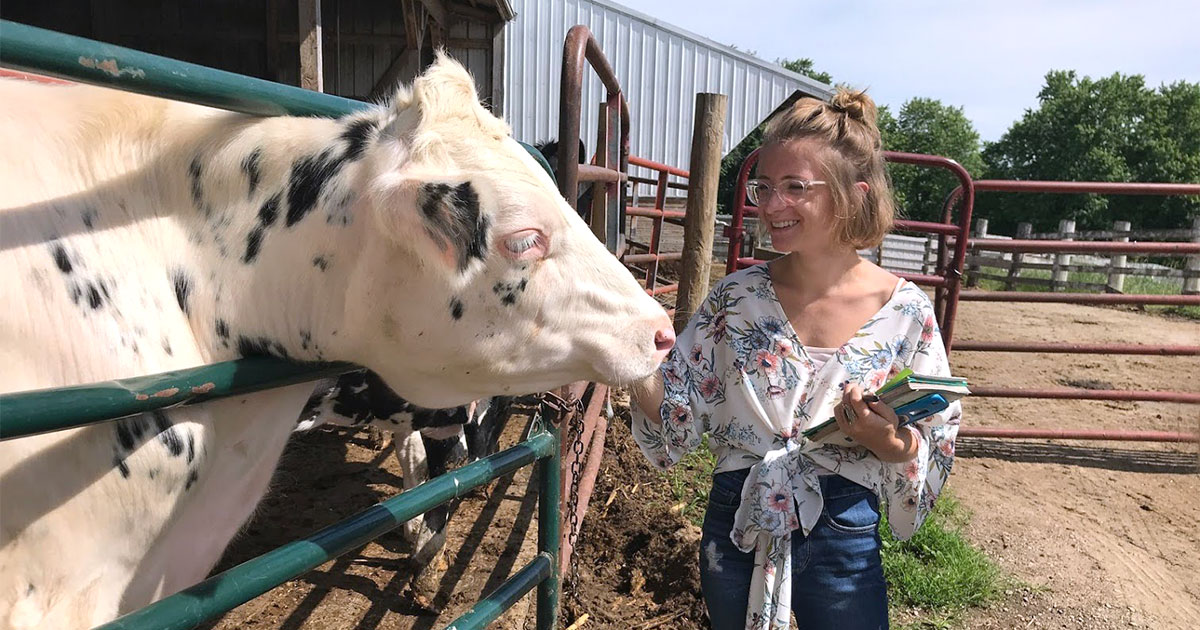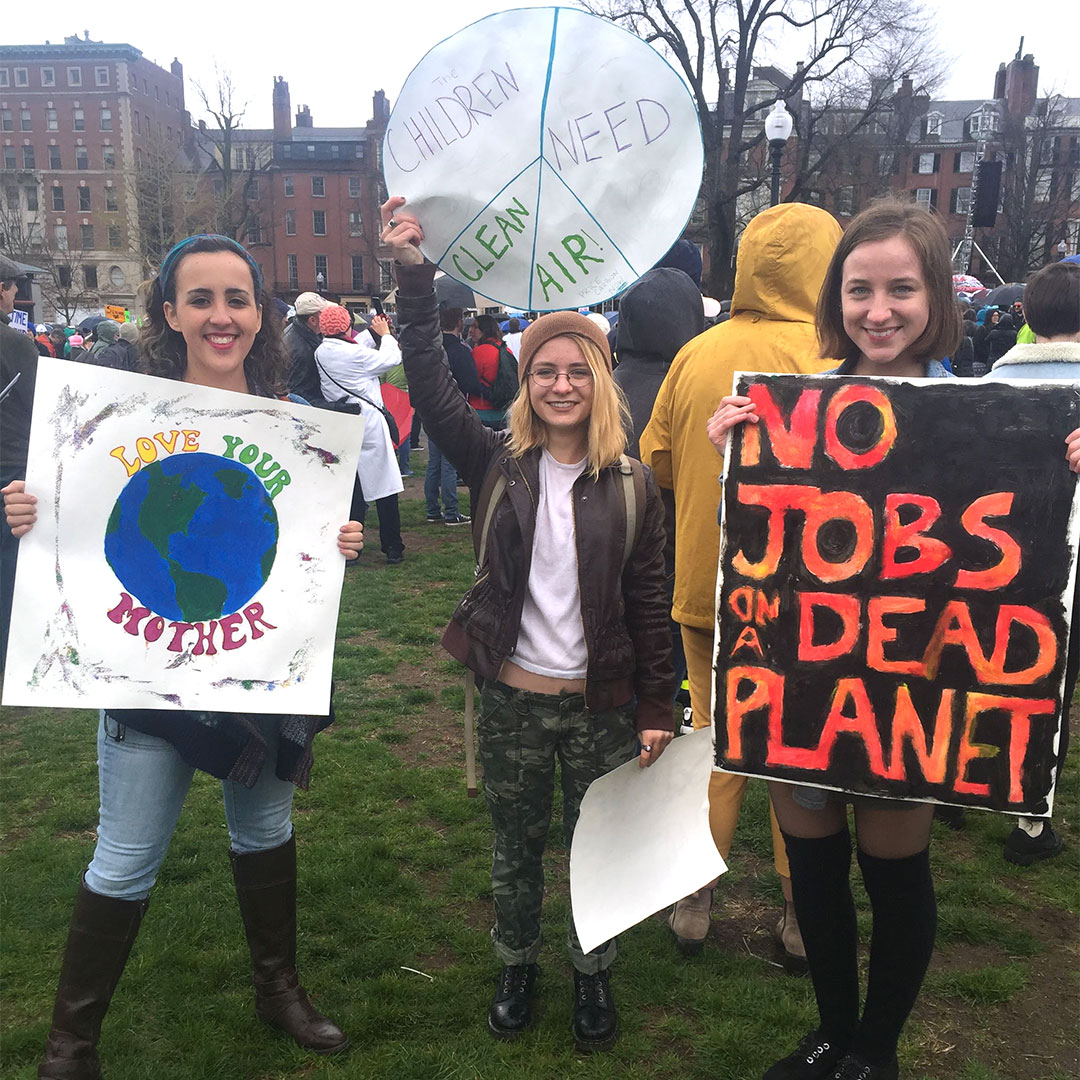From Film School to Food Activism

New Bon Appétit Fellow Carrie Cullen making friends at Hastings Dairy Co-op in Minnesota
I had a complicated relationship with food growing up. Living with chronic stomach trouble, eating seemed like a chore that I met with fear and resistance. It took me years to realize that it wasn’t my body that was failing me — it was the system my food came from.
I grew up in a large Italian family where cooking is a labor of love. My grandfather is one of ten, and he often notes his impoverished mother’s gift for keeping her children fed. She looked to the Earth to help feed her children, tending to a backyard garden and baking bread from simple, whole ingredients. The smell of that bread baking, the timeless art of which was passed down to my mother, defines my childhood. I now appreciate food for what it is: spiritual medicine that brings people together.
Eighteen years and countless pounds of pasta later, I swapped my small New Jersey town for Boston’s Emerson College and film school. As I struggled to adapt to life away from home, my relationship with food strained as my health issues became worse. Simultaneously, increasing numbers of my loved ones began falling ill, seemingly out of the blue. It opened the door for serious questions about the impact of our environment on human health.

Carrie (center) at the 2016 March for Science in Boston
I enrolled in every environmental studies class possible as dreams of Hollywood glamor took a backseat to activism. With sustainability in mind, I transitioned to a less-processed, vegan diet. To my surprise, my chronic health problems improved. I began connecting the dots between my health and the quality of the processed food I had been eating, ultimately realizing I couldn’t be the only one unknowingly sickened by industrial agriculture. Soon I was living again, this time determined to channel my newfound energy towards healing the planet and my loved ones sickened by its state.
I spent my remaining college years organizing with my peers for environmental reform on and off campus. Instead of spending summers in the city interning at film companies, I worked on climate policy campaigns, volunteered in gardens, and even lived in solitude on a farm to film my capstone project. Senior year, I spent a semester in Hollywood, a program intended to connect Emerson students to the film industry. I chose an internship in regenerative agriculture instead. My dorm overlooked the Hollywood sign, but I had never felt so distant from it all.
During my final year at Emerson, the school’s administration switched food service providers to Bon Appétit. Suddenly my peers and I had a team of dining service allies who were fighting for the same sustainability initiatives on campus that we’d spent our whole college career pushing for. Part of the uphill journey toward campus sustainability was leveled for us. I was also able to eat on campus — and really eat, without wondering if I’d survive the rest of the day. The switch reminded me of the medicinal power of food.
Learning of the Bon Appétit fellowship brought my path back into clarity. I’m grateful to continue fighting for an ethical, sustainable food revolution with the team that improved my college experience. Following graduation, I moved to Los Angeles as I have long dreamed — but to work in the business of sustainable eating, not entertainment.